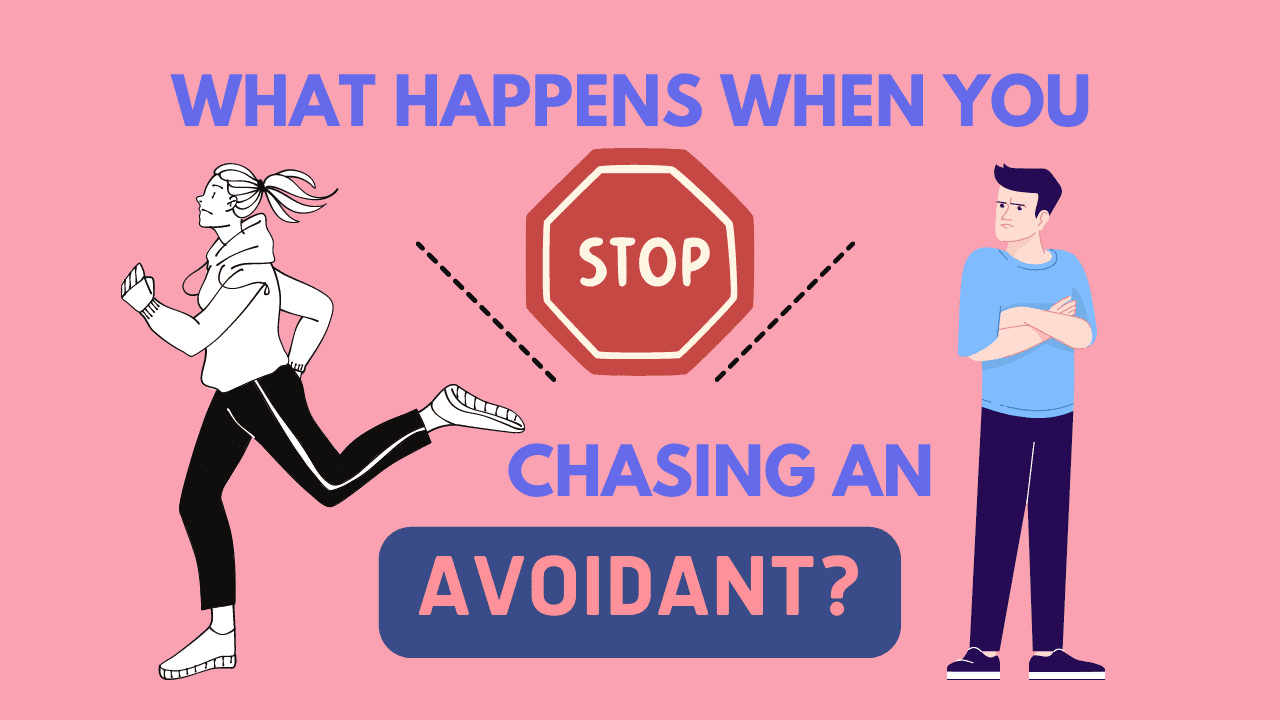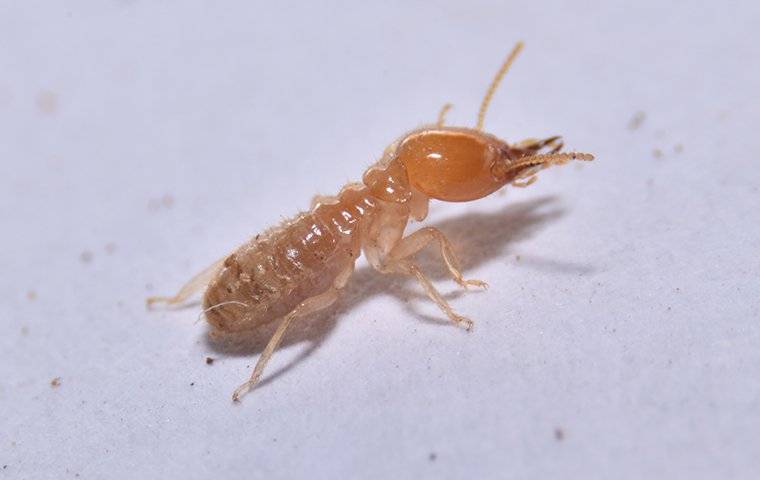What Happens When You Stop Chasing an Avoidant
When you’re in love with someone who has an avoidant attachment style, it can feel like you’re constantly chasing them. You may feel like you’re always the one reaching out, trying to get closer, and wondering why they never seem as interested in you as you are in them. If this sounds familiar, you might be wondering what happens if you stop chasing an avoidant partner.
There’s no easy answer to this question because it depends on the individual situation. If your partner is truly avoidant and doesn’t want to be close to anyone, then stopping the chase is likely not going to change anything. They may still pull away from you and never really let you in.
However, if your partner does want intimacy but is afraid of it, then stopping the chase could be a way to help them feel more comfortable. If you do decide to stop chasing an avoidant partner, it’s important to do so in a way that is respectful and loving. Avoid any kind of ultimatum or demand; instead, simply express your own needs and desires clearly.
Let them know that you’re open to being close but that you also understand their need for space and distance. Then give them the time and space they need without being too pushy or intrusive.
When you stop chasing an avoidant, it can feel like a relief. You no longer have to put yourself in their line of fire and you can finally move on. However, there are some things that you need to be aware of before you completely cut ties with them.
If you have been chasing an avoidant for any length of time, it’s likely that they have already caused you some pain. They may have ghosted you, or they may have pulled away when things started to get too close. Either way, they have probably left you feeling hurt and confused.
It’s important to remember that avoidants are not bad people, they just operate differently than most of us do. They tend to be more independent and self-sufficient, which can make them seem cold or uninterested in relationships. The truth is, they just don’t feel the need for close connections the way we do.
If you’re still feeling pain from your interactions with an avoidant, it’s important to give yourself time to heal before moving on. Avoidants can leave us feeling raw and exposed, so it’s important to take care of yourself before trying to date again. Once you’ve taken some time for yourself, you’ll be able to approach new relationships from a place of strength and confidence.
What Happens When You Stop Chasing an Avoidant Reddit
When you’re in a relationship with someone who has an avoidant personality disorder, it can feel like you’re always chasing them. You might try to get their attention by being extra nice or doing things for them, but it never seems to be enough. Eventually, you might get tired of chasing and decide to stop.
So what happens when you stop chasing an avoidant partner? In some cases, they may finally start to pay more attention to you. They may realize that they need to put in more effort if they want the relationship to work.
Or, they may decide that they don’t want to be in a relationship with someone who isn’t willing to chase them. Either way, it’s important to remember that you are not responsible for their happiness. You can only control your own actions and decisions.

Credit: www.audacy.com
What Happens When You Leave an Avoidant?
When you leave an avoidant, they may feel a sense of relief. This is because they no longer have to deal with the stress and anxiety of being in a relationship. They may also feel a sense of loss, as they now have to face their fears and emotions alone.
Do Avoidants Care When You Leave?
When it comes to relationships, those who tend to be more avoidant are often more comfortable with space and independence. So, when you leave or distance yourself from them, they may not react in the way that you expect. In fact, they may not seem to care at all.
However, this doesn’t mean that they don’t care about you. It may just mean that they’re better at hiding their emotions or that they don’t feel as invested in the relationship as you do. If you’re wondering whether or not your avoidant partner cares about you, look for signs like if they make an effort to stay in touch or if they express any sadness or concern when you’re apart. Just because they don’t show their feelings as much doesn’t mean they don’t have them.
What Happens When You Give Space to an Avoidant?
When you give space to an avoidant, they may initially feel relieved and grateful. However, over time they may start to feel anxious and lonely without your constant presence. They may also begin to doubt your feelings for them and wonder if you are really committed to the relationship. If you continue to give them space, they may eventually become emotionally distant and withdraw completely.
Do Avoidants Regret Run Away?
There is no definitive answer to this question as everyone experiences and handles regret differently. Some people may find that they do indeed regret running away from their problems, while others may find that it was the best thing they could have done for themselves. It really depends on the individual person and their unique circumstances.
If someone is facing a difficult situation in their life and they feel like running away is their only option, then it’s unlikely that they will regret doing so later on. However, if someone runs away from their problems without giving it proper thought or consideration, then they may end up regretting their decision down the road. Ultimately, it’s up to the individual to decide whether or not running away from their problems is the right thing to do.
This Is What Happens When You Stop Chasing An Avoidant
Conclusion
In her blog post, “What Happens When You Stop Chasing an Avoidant,” Lisa F. Baker discusses what can happen when you stop chasing after someone who is avoidant in nature. She explains that when you stop chasing, the avoidant person may actually begin to chase after you instead. This can be a good thing, as it may mean that they are finally ready to face their feelings and open up to you.
However, it can also be a bad thing, as the avoidant person may only be chasing after you because they feel like they have to in order to keep you around. Either way, Baker advises against chasing after someone who is avoidant, as it is often an exercise in futility.






